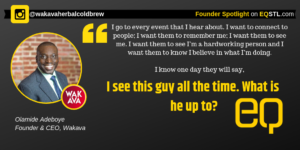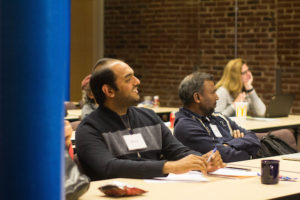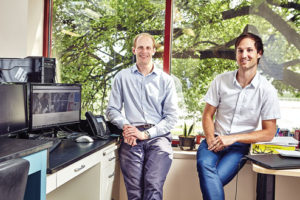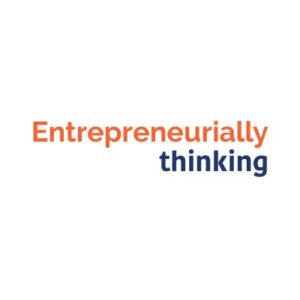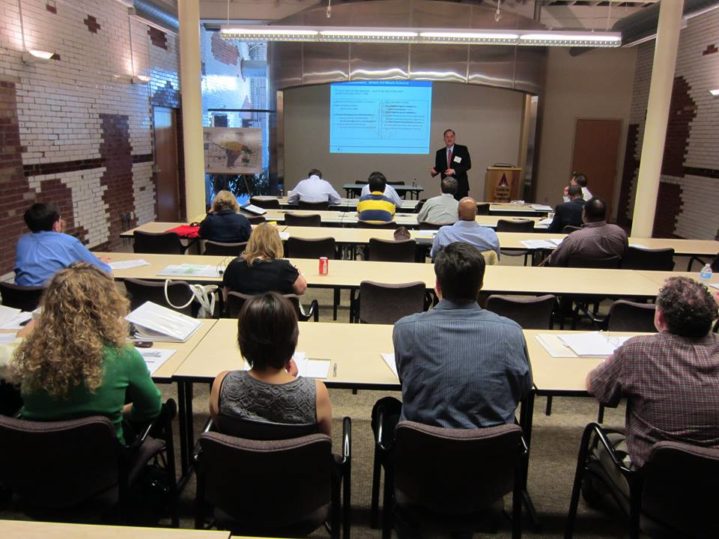
Presented by CORTEX
Day 1 with Sq1: Lessons for First-Time Entrepreneurs
So you wanna be an entrepreneur? Sq1 is here to help you.
So you wanna be an entrepreneur? Sq1 is here to help you. Designed as the Center for Emerging Technology (CET)’s flagship program for entrepreneurs, Square One (SQ1), is a hands-on training program giving support to first-time entrepreneurs working in bioscience, information technology or consumer products in the St. Louis area.

A pre-accelerator accelerator, Sq1 aims to get the ball rolling with first-time entrepreneurs and introduce them to the St. Louis startup ecosystem.
“Basically, you have more than an idea, and you have more than an idea that you are committed to seeing though to see if there is a viable business model there,” says Christy Maxfield, CET Director of entrepreneur development services.
The program, now in its second year, meets twice a week offering subject matter experts, mentors and coaching to help participants steer the course of entrepreneurship.
Across the ten-week course, aspiring entrepreneurs learn about marketing, legal needs, business models, pitches, product development and much more. But aside from the hard deliverables, there are a few lessons for even going through the program that can help you succeed.
Maxfield sat down with EQ and walked us through some of Sq1’s biggest lessons for entrepreneurs looking to enroll in Sq1:<
1. Talk about your idea.
“Sharing it with others whether it’s industry experts, or folks outside of their area of specialty will help (you) grow the information and collect the data points (you) need to really be able to flesh out their businesses and test assumptions,” says Maxfield.
“It’s not until you tell someone what you’re doing can they then volunteer and say, ‘Well I’ve done that before, can I help you figure out that part’ or ‘Here’s what I learned by doing that’. If you keep it to yourself, nobody can offer you that collaborative spirit.”
2. Test your assumptions.
Why does the market needs this? Why will people buy this? Why would investors be interested? These are all questions entrepreneurs have to answer.
“You really need to be prepared to backup all of the things you are assuming of your business, which can sometimes be daunting,” Maxfield says.
“Which is why we take them through a process to explain, this is a pathway you can take for what is a very challenging undertaking: Becoming an entrepreneur, launching a company, working with partners, getting investors, these are all very challenging that you’ve set up for yourself.”
3. Form a team.
One of the biggest advantages that Sq1 offers is the chance to get to more people in St. Louis’ innovative community. “There’s a lot of camaraderie about taking on this major endeavor,” says Maxfield.
“When we start to see the overlap in some of the ideas we encourage them to talk to each other and see if there is an intersection. We aren’t there to force them to partner, but we do want them to think about, is this a potential team member for you?
Could one of your ideas be stronger if it was complemented by the other? And, do you have classmates who have expertise in an area where you don’t?
For example, if you need logistical experience and one of our participants knows logistics even though it’s not a part of the venture that they’re doing right now, that’s now part of your resource network.”

4. Engage professional advisors.
Sq1 urges their students to take advantage of the community as best they can, because the help is out there. “They should form these relationships, create networks, engage with these people and pay for the talent when they need it,” Maxfield says.
“Whether it’s our speakers who come in or our sector leaders who devote their time or mentors who make time for these folks, we have people who genuinely care about those who are brave enough to put their ideas out there and try to make that idea into a viable venture.
Or help them shape it to know whether or not it’s going to be a viable venture. There is a genuine desire to be part of the success of these people.”

